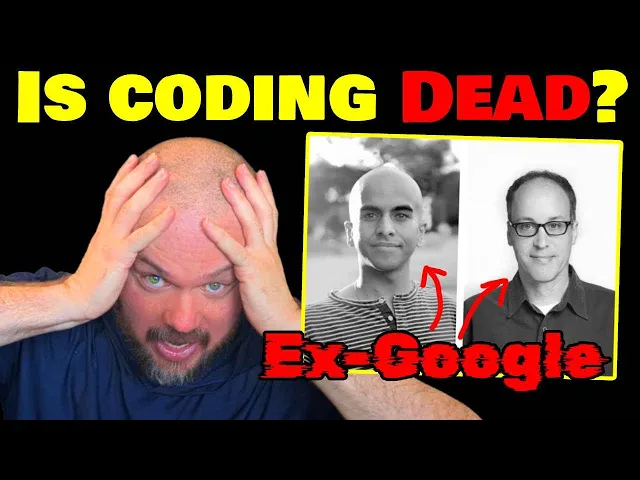Did AI Just Kill Software Devs? ex-Google VP of Engineering Speaks out…

AI won't replace developers but will transform coding
In a recent enlightening interview, Manik Gupta, former Google VP of Engineering, offered a nuanced perspective on AI's impact on software development that cuts through the typical doomsday headlines. Far from the apocalyptic "AI will replace all developers" narrative, Gupta presents a more measured outlook: AI will fundamentally transform how developers work while creating new opportunities for those who adapt. His insights arrive at a critical inflection point when generative AI tools like GitHub Copilot and ChatGPT are rapidly changing software development practices.
Gupta's perspective carries significant weight given his extensive experience at tech giants like Google and Uber, as well as his current role at Microsoft. Throughout the interview, he balances optimism about AI's potential with pragmatic acknowledgment of its current limitations, providing a roadmap for how developers might navigate this technological transition.
Key insights from Gupta's interview:
-
AI complements rather than replaces developers – While AI excels at generating code and solving routine problems, it lacks the strategic thinking, domain knowledge, and creative problem-solving abilities that define exceptional developers.
-
The developer role is evolving, not disappearing – Future developers will likely spend less time writing code from scratch and more time on higher-level activities like system design, requirements gathering, and translating business needs into technical solutions.
-
Learning to effectively prompt and collaborate with AI tools will become a crucial skill for developers, potentially creating a new specialization of "prompt engineers" who excel at guiding AI systems.
The transformative potential of AI pair programming
Perhaps Gupta's most compelling insight is how AI will function as a collaborative partner for developers rather than a replacement. This "pair programming" model transforms AI from a threat into a powerful productivity multiplier that handles routine coding tasks while developers focus on more complex challenges requiring human judgment.
This shift matters tremendously in our current tech landscape. As businesses face mounting pressure to digitize operations and delivery timelines compress, AI-assisted development could help bridge the persistent talent gap in technology. For individual developers, mastering AI collaboration represents both job security and career advancement in an increasingly AI-integrated field.
The industry is already moving in this direction. Microsoft reports that developers using GitHub Copilot complete tasks approximately 55% faster than
Recent Videos
How To Earn MONEY With Images (No Bullsh*t)
Smart earnings from your image collection In today's digital economy, passive income streams have become increasingly accessible to creators with various skill sets. A recent YouTube video cuts through the hype to explore legitimate ways photographers, designers, and even casual smartphone users can monetize their image collections. The strategies outlined don't rely on unrealistic promises or complicated schemes—instead, they focus on established marketplaces with proven revenue potential for image creators. Key Points Stock photography platforms like Shutterstock, Adobe Stock, and Getty Images remain viable income sources when you understand their specific requirements and optimize your submissions accordingly. Specialized marketplaces focusing...
Oct 3, 2025New SHAPE SHIFTING AI Robot Is Freaking People Out
Liquid robots will change everything In the quiet labs of Carnegie Mellon University, scientists have created something that feels plucked from science fiction—a magnetic slime robot that can transform between liquid and solid states, slipping through tight spaces before reassembling on the other side. This technology, showcased in a recent YouTube video, represents a significant leap beyond traditional robotics into a realm where machines mimic not just animal movements, but their fundamental physical properties. While the internet might be buzzing with dystopian concerns about "shape-shifting terminators," the reality offers far more promising applications that could revolutionize medicine, rescue operations, and...
Oct 3, 2025How To Do Homeless AI Tiktok Trend (Tiktok Homeless AI Tutorial)
AI homeless trend raises ethical concerns In an era where social media trends evolve faster than we can comprehend them, TikTok's "homeless AI" trend has sparked both creative engagement and serious ethical questions. The trend, which involves using AI to transform ordinary photos into images depicting homelessness, has rapidly gained traction across the platform, with creators eagerly jumping on board to showcase their digital transformations. While the technical process is relatively straightforward, the implications of digitally "becoming homeless" for entertainment deserve careful consideration. The video tutorial provides a step-by-step guide on creating these AI-generated images, explaining how users can transform...
